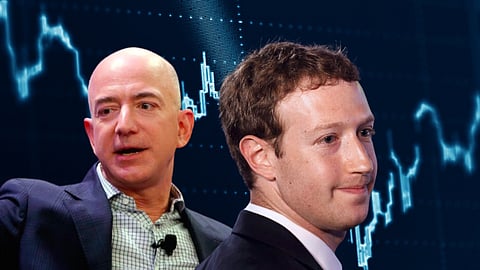Decoding the implications of Bezos and Zuckerberg’s stock sales: Jonathan Levin
As the S&P 500 reaches record highs, insider sales surge at top-performing companies like Amazon and Meta. Despite concerns, this is a positive sign in a healthy mid-cycle market. Insider transactions have risen notably among the Magnificent Seven growth stocks, reflecting executives' liquidity and diversification needs after a hiatus. While interpreting insider sales can be tricky, the current context, marked by moderate IPO activity and sustained market factors, suggests that the surge in insider trading isn't an alarming signal but rather aligns with a market that still holds potential.
Sign up for your early morning brew of the BizNews Insider to keep you up to speed with the content that matters. The newsletter will land in your inbox at 5:30am weekdays. Register here.
By Jonathan Levin
With the S&P 500 near all-time highs, insider share sales have picked up at top-performing companies.
___STEADY_PAYWALL___

